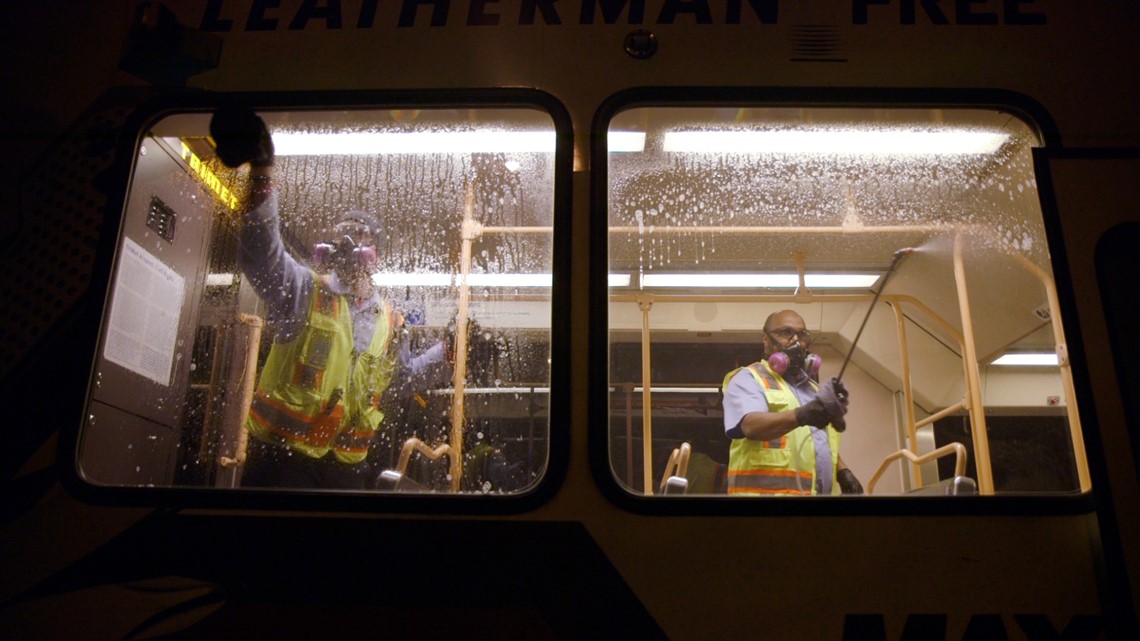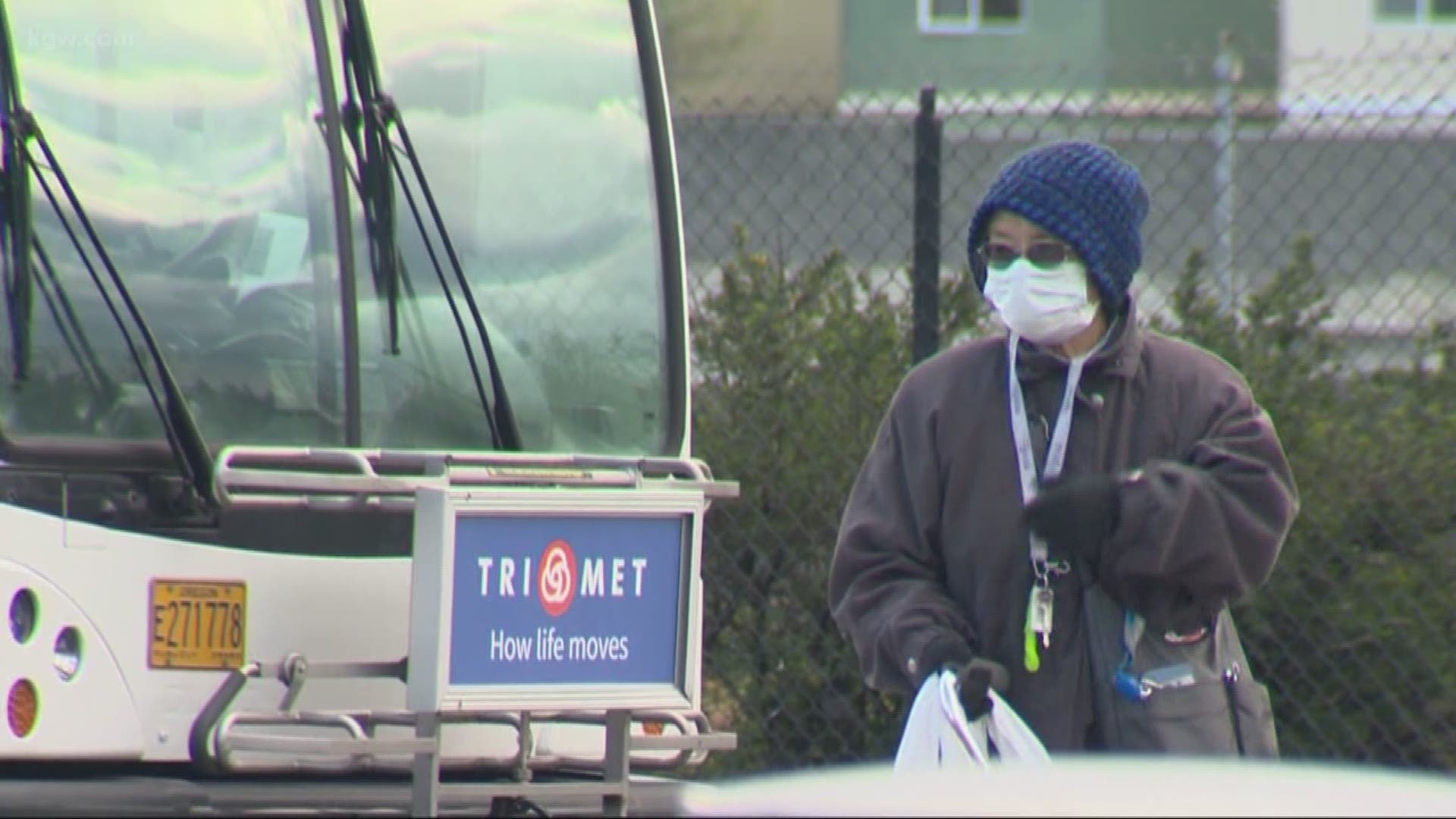PORTLAND, Ore — TriMet is making changes to help make buses and trains safer for riders and employees during the coronavirus pandemic. It will soon require riders and employees to wear face masks.
As part of the state's plan for reopening, Oregon Gov. Kate Brown and the Oregon Health Authority (OHA) outlined requirements for transit agencies.
Back in March, TriMet implemented new cleaning measures, changed procedures to better protect their operators and started educating riders on staying healthy.
“Now, as we look forward to the TriMet of tomorrow, we will step up even more," TriMet General Manager Doug Kelsey said in a press release, "It is paramount that our customers feel safe with the transit service we provide. Gov. Brown’s order helps build on everything we’ve done to date.”
Starting Wednesday, May 20, riders must wear face coverings that cover their nose and mouth on TriMet trains and buses. Previously, riders were strongly urged to wear masks.
OHA encourages riders to wear coverings at rail stations, transit centers and bus stops because it is hard to maintain at least six feet of distance from others in those environments.
If someone has a medical condition or disability that prevents the use of face coverings, TriMet says they should not wear them.
"When people wear face coverings it sends a strong message of community. It shows respect and caring for our neighbors and each other," TriMet spokeswoman Roberta Altstadt said.
Based on direction from OHA, TriMet will also install face covering and hand sanitizer dispensers inside all buses and trains. They ask that riders bring their own hand sanitizer and face coverings but it plans to offer supplies because some people may have trouble accessing them on their own.


TriMet has given operators face coverings since early April, along with providing hand sanitizer and disinfecting wipes.
Because face coverings will be required for everyone, physical distancing guidelines have changed. Passengers are required to stay at least 3 feet from one another and 6 feet away from operators.
To better protect TriMet operators, the agency is installing more operator safety panels. It says half its buses have the safety glass enclosures already to protect operators. For the time being, you still can't use cash on buses.
The number of riders on board buses and trains is still very limited. However, because of new physical distancing and face-covering directions, it can adjust previous restrictions.
Standard buses can now carry 19 individuals, or up to 24 people if some are riding together as couples or with children. Previously, the number of riders on buses was limited to 15. If the bus has reached its limit, the sign on the front will say it's at capacity.
On MAX trains, riders still need to space themselves out as much as possible. There will be 22 to 26 seats available in a vehicle so riders can spread out at least 3 feet. LIFT paratransit service requires a reservation.
TriMet plans to post signs on all vehicles with the maximum occupancy on board in the coming weeks. TriMet hopes to have them all installed by the end of July.
The agency will clean every vehicle more often throughout the day, eventually aiming for once every four hours. Cleaners will disinfect touch points in addition to deep cleaning they do every night.
Riders will continue to be educated about COVID-19 symptoms and precautions on board.
"The use of face coverings on transit and distancing from others in no way replaces the precautions laid out by the CDC that people should take to keep themselves and others healthy. Most importantly, if people are sick - no matter the symptoms - they should stay home and avoid all travel," Altstadt said.
People should still wash their hands thoroughly with soap and water before and after riding public transit.
Riders can expect to hear more from TriMet as the agency continues to urge people to take all necessary steps to protect themselves and those around them, including operators and other frontline workers that are essential to keep society going.
"Together, we can slow the spread of this virus until a vaccine can be developed to stop it," Altstadt added.
Editor's note: the video above is from April 2, 2020

